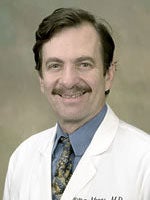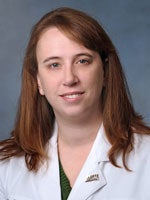Division of Medical Toxicology
Mission
The Division of Medical Toxicology (Division) is dedicated to providing exceptional Clinical Care, Education, Research and Outreach in Medical Toxicology.
The Division engages a multifaceted team of professionals to achieve these goals.
Who we are:

Jason B. Hack, MD, FACEP, FACMT
Vice Chair for Research
Dept. of Emergency Medicine

William Meggs, MD, PhD, FACMT, FACEP
Member, Division of Research

Susan N. Miller, MD
Clinical Assistant Professor

Jennifer L. Parker-Cote, MD
Assistant Professor
Medical Toxicology
Medical Toxicology is a subspecialty devoted to the treatment of poisoned people. It is was sanctioned by the American Board of Medical Specialties in 1992. The first board certification examination was given by the American Board of Medical Toxicology in 1994, and is given every two years. The professional organizations of medical toxicologists are the American College of Medical Toxicology and the American Academy of Clinical Toxicology. To become a medical toxicologist, one has to obtain a medical degree, complete a residency in either Emergency Medicine, Pediatrics, or Occupational Medicine, and complete a two year fellowship in Medical Toxicology.
The Division of Medical Toxicology at the Brody School of Medicine at East Carolina University consists of its Director Dr. Jason Hack, MD, FACEP, FACMT; Dr. Susan Miller, MD; Jennifer Parker-Cote, MD, and Dr. William J. Meggs, MD, PhD, FACEP, FACMT.
Clinical Care
The Medical Toxicology Division at ECU provides expert advice through an enhanced phone consult service to practitioners within ECU Health Medical Center 24 hours a day. A resident physician and an attending medical toxicologist are on call every day to assist in caring for patients with drug, pharmaceutical, animal or environmental exposures.We are frequently involved in care of patients in the Emergency Department, the Intensive Care Units, and hospital wards.In addition, emergency consultations are given by telephone to physicians in the region, and is often involved in caring for patients with severely poisoned patients transferred to Vidant Medical Center for treatment. Helicopter transfer is available for seriously poisoned people via ECU Health Medical Transport Air Medicine Service.
Education
The Medical Toxicology Division provides an educational program in the area of clinical toxicology at the hospital, local, state, and national levels.
The Division provides a month-long required rotation for the second year emergency residents which includes didactics, presentation and is coupled with being first-call for the Division’s Toxicology consult service. The rotation introduces these learners to the care of intoxicated or exposed patients—focusing on the foundations of toxicology: The First Five Minutes, Toxidrome Identification, Appropriate use of Laboratory Testing, Familiarity with Antidotes, Decontamination Techniques, Establishing Observation Parameters, Appropriate Disposition.An elective for other services and medical students is under construction.Educational offerings of the Division has included CME granting Toxicology Grand Rounds, monthly Toxicology case conference, and a variety of other educational lectures, journal club and bedside teaching. The Division is also involved in extra-hospital educational events including Grand Rounds at regional hospitals, lectures at CME courses for physicians, nurses, and paramedics.The Toxicology faculty actively contribute to the scientific research literature base by publishing in both journals and in major textbooks including Goldfrank’s Toxicological Emergencies, Tintinalli’s Study Guide to Emergency Medicine, and Greenberg’s Occupational Toxicology.
Research
The Toxicology Division is very active in medical research with a main research focus on studies to answer important questions on mechanism or effects of poisoning to optimize management with antidotes or techniques in experimental models. Other areas of special interest include the toxic induction of asthma and rhinosinusitis, chemical sensitivity, and studies that overlap the fields of toxicology and allergy and immunology.The Toxicology faculty has presented their research at regional, national and international meetings. Their work brings recognition to ECU with published in peer-reviewed research journals.
Service and Outreach
The Division has been an active as a source of information for local news sources on toxicologic matters. It has also been the primary educators on Toxicologic subjects within the medical school, partnered with regional educational groups, and has provided Advanced Hazmat Life Saving training for the region.
Resources
- American Board of Medical Specialties
- American College of Medical Toxicology
- American Academy of Clinical Toxicology
Division of Toxicology Grand Rounds recordings